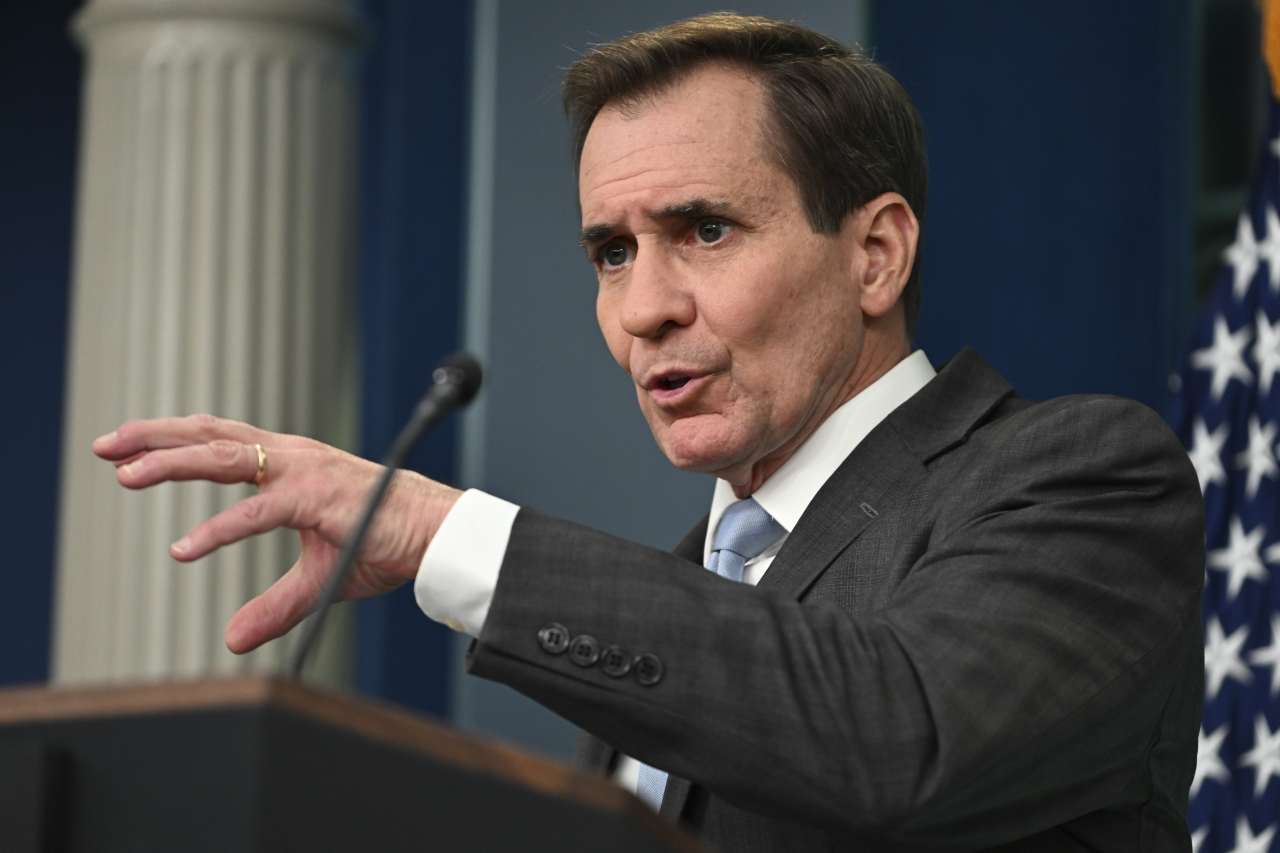Russia sent more than 165,000 barrels of refined petroleum to N. Korea in March: White House
By YonhapPublished : May 3, 2024 - 09:04

Russia delivered more than 165,000 barrels of refined petroleum to North Korea in March alone, a White House official said Thursday, noting its shipments thus far have already exceeded Pyongyang's annual import cap mandated by the UN Security Council.
National Security Communications Advisor John Kirby made the remarks as Washington is working in tandem with South Korea, Japan and other partners to roll out new sanctions this month against those aiding in transfers of weapons and refined petroleum between the North and Russia.
His revelations came amid concerns that the sanctions regime against the North could erode due to this week's expiration of the mandate of a UN expert panel monitoring sanctions compliance -- a termination caused by Russia's veto.
"In March alone, Russia shipped more than 165,000 barrels of refined petroleum (to the North)," Kirby said. "Given the close proximity of Russian and North Korean commercial ports, Russia could sustain these shipments indefinitely."
Under UNSC sanctions, the North is banned from importing more than 500,000 barrels of refined petroleum products per year.
Kirby stressed that Washington will continue efforts to disrupt trade in weapons and oil between the North and Russia.
"The United States is going to continue to impose sanctions against all those working to facilitate arms and refined petroleum transfers between Russia and the DPRK," he said. DPRK stands for the North's official name, the Democratic People's Republic of Korea.
Commenting on this issue, Matthew Miller, the State Department spokesperson, said that the US is currently working with its partners, including South Korea, Britain, Australia, the European Union, New Zealand and Japan, to announce new coordinated sanctions designations this month.
The disclosure about the Russian shipments came as the mandate of the expert panel ended Tuesday following Russia's veto late March of a UNSC resolution that would have extended the mandate in what had been an annual renewal.
Kirby called Moscow's veto a "calculated" move to hide its own violations of UNSC resolutions.
Through regular reports, the panel had laid bare various cases of sanction violations. Its latest report this year touched on arms trade between Moscow and Pyongyang, which Seoul, Washington and others berated as violations of multiple UNSC sanctions.
"By disbanding the panel of experts, Russia is also attempting to obscure its violations of binding Security Council resolutions," Kirby said.
With the expiration of the panel's mandate, South Korea, the US, Japan and other nations have been looking for alternative measures to help ensure sanctions compliance.
On Wednesday, 50 countries issued a joint statement, stressing the need to consider how to keep access to "objective" and "independent" analysis regarding the enforcement of anti-North Korea sanctions. (Yonhap)








![[KH Explains] Hyundai-backed Motional’s struggles deepen as Tesla eyes August robotaxi debut](http://res.heraldm.com/phpwas/restmb_idxmake.php?idx=644&simg=/content/image/2024/05/16/20240516050605_0.jpg&u=20240516155018)










![[Today’s K-pop] NewJeans hits 600m Spotify streams with ‘Ditto’](http://res.heraldm.com/phpwas/restmb_idxmake.php?idx=642&simg=/content/image/2024/05/17/20240517050510_0.jpg&u=)